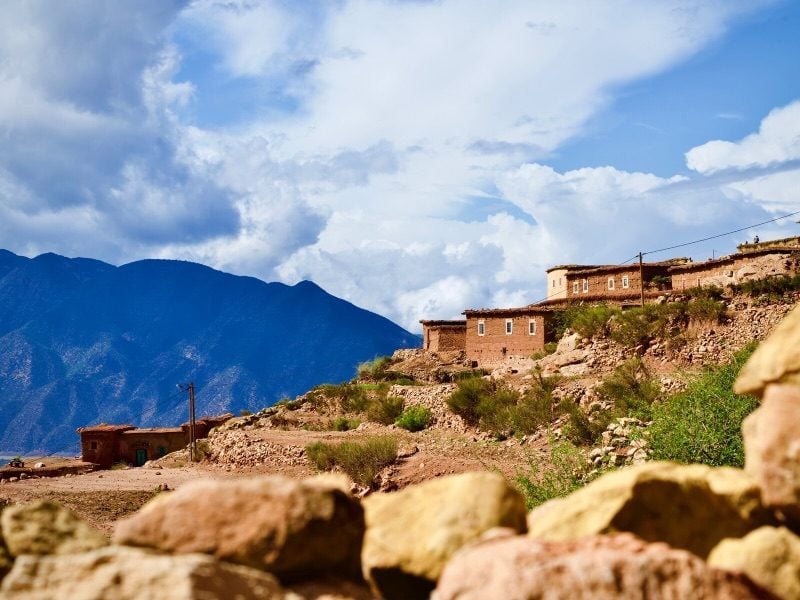Traveling in Morocco, you are bound to trip across one of the most defining characteristics of the country – the Berbers. As the original inhabitants of Morocco, they are rightly proud of the contributions they have made in shaping the country. With a unique language and culture, the Berbers stand out as one of last bastions of tradition in an ever-modernizing society; while even the oldest villagers now happily chat on cell phones, they do so in a tongue almost impenetrable to anyone from the outside world.
Morocco Berber History
Berber history goes back to prehistoric times. In fact, Morocco is home to the oldest Homo Sapiens ever found — nearly 300,000 years old! This means that the indigenous people of Morocco have been here for a pretty long time. Much of what we know about the very first people of Morocco come from archeological records. Of the Berbers themselves, much of that history is oral. In fact, it’s probably a mistake to call them “Berber” at all!
The Berbers proudly call themselves the Amazigh, the “free people.” The name “Berber” derives from “Barbary,” that is, from the Greek barbaria. Though “Berber” is commonly used throughout Morocco, both by those who identify as Amazigh, and other Moroccans, it’s probably not the nicest or most accurate name. On the flip side, should you ever hear yourself called an arumi, you are being called a foreigner, or, literally, a Roman.
Thousands of years ago, the Amazigh ruled all of North Africa, largely through different tribes. They would crisscross over the Sahara and throughout the southern basin of the Mediterranean for trade and travel. Over the centuries, they have been called by many names: The ancient Greeks called them “Libyans”; Romans called them variously “Numidians,” and “Africans” while much of medieval Europe referred to this collection of tribes in North Africa as “Moors.” In fact, it was the Arabs who came up with the Berber name: Al-Barbar. This was likely a re-adaptation of the ancient Greek term of “barbar.” However, there is some thought, as written by the Arab scholar Ibn Khaldun, that there could have been an ancient person by the name of “Barbar,” in some texts, a mother named “Barbara,” who gave the name to the tribes, perhaps around Somalia.
When Moulay Idriss, the founder of modern Morocco, fled the Abassid Dynasty, he brought Islam with him, peacefully converting the Awraba tribe and establishing the Idrissid Dynasty. Prior to that, most Berbers across all of North Africa were Anamist, Christian or Jewish. Islam quickly spread through the region, though somewhat different to what was practiced in Middle East. Two of the greatest historic Moroccan dynasties, the Almoravids and Almohads, were Islamic Berber dynasties that ruled large parts of Spain and northwest Africa.
Over the years, the Amazigh have battled, traded, negotiated, and played host to the Phoenicians, Carthaginians, Romans, Arabs, Spanish, and French. Even though the Romans and others have tried to colonize the Berber people, they have managed to preserve their own language and culture, and in reality have never been conquered!
Berber language is primarily oral in nature, although they have had their own writing system for at least 2,500 years. Sometimes hard to find, the earliest writings can be found catalogued in the small museums throughout the south. More recently, the language has been officially codified and, alongside classical Arabic, is one of the two official languages of Morocco.

